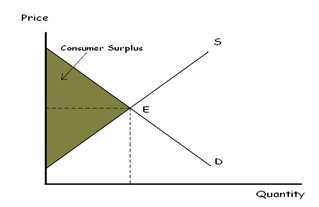- Business Concepts ›
- Marketing and Strategy ›
- Discrimination Pricing
Discrimination Pricing
Definition & Meaning
This article covers meaning & overview of Discrimination Pricing from marketing perspective.
What is meant by Discrimination Pricing?
Discrimination Pricing is the practice of charging different prices to different customers for the identical goods or services sold by the same supplier.
In price discrimination, a firm mainly strives to extract maximum consumer surplus for its goods or services in order to earn higher revenues and profits.

For price discrimination to exist, a firm must –
- be able to identify different groups of consumers with different price elasticities,
- be able to prevent the low-price benefiters from selling the goods or services to expected higher price customers,
- have some monopoly power.
There are mainly three types of price discrimination
1. First Degree Price Discrimination:
It occurs when a firm is able to discriminate between each individual customer and charge different price based on the attributes of that customer.
This kind of discrimination extracts almost entire consumer surplus but requires huge investments to carry out market research to indentify an individual consumer traits.
e.g.) Bidding for tenders, auctioning etc.
2. Second Degree Price Discrimination:
It occurs when a firm is unable to identify the consumer attributes and hence offers different prices based on the quantity of goods or services purchased.
Generally, larger discounts are offered for purchase of more quantity of goods or services.
e.g.) Bulk discount offers on major e-commerce stores in which discount percentage increases with the increase in quantity ordered
3. Third Degree Price Discrimination:
It occurs when a firm is able to group consumers into different segments based on certain attributes and charge different price of every individual segment.
e.g.) Different fares are set depending on the class (AC-I, AC-II, AC-III, Second Sleeper etc.) chosen for a train journey.
Hence, this concludes the definition of Discrimination Pricing along with its overview.
This article has been researched & authored by the Business Concepts Team which comprises of MBA students, management professionals, and industry experts. It has been reviewed & published by the MBA Skool Team. The content on MBA Skool has been created for educational & academic purpose only.
Browse the definition and meaning of more similar terms. The Management Dictionary covers over 1800 business concepts from 5 categories.
Continue Reading:
What is MBA Skool?About Us
MBA Skool is a Knowledge Resource for Management Students, Aspirants & Professionals.
Business Courses
Quizzes & Skills
Quizzes test your expertise in business and Skill tests evaluate your management traits
Related Content
All Business Sections
Write for Us